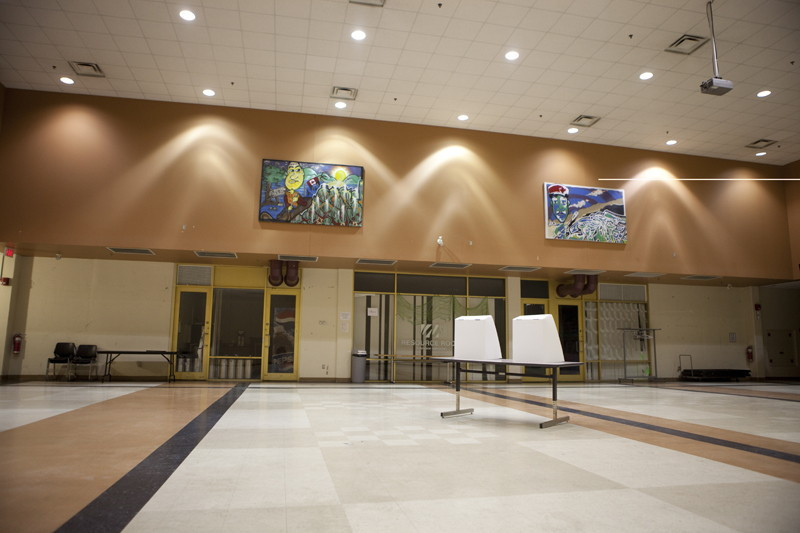Does voting matter in the North?
Aboriginal voter turnout on a downward spiral
Although 72 per cent of Manitobans polled by Probe Research before Manitoba’s election were “very certain” they would vote Oct. 4, only 56 per cent actually did.
And in Manitoba’s four northern electoral divisions, where a significant part of the population is aboriginal, voter turnout ranged from 30 to 37 per cent.
Aboriginal voter turnout in the 1962 federal election, the first in which aboriginals could vote without losing treaty status, was 65 per cent. Since then, turnout has steadily declined, reaching a critical low of 26.7 per cent in 2003.
Doug Thomas, communications director for the Assembly of Manitoba Chiefs, said the organization actively encouraged voting in the federal election this spring, with the support of then-Grand Chief Ron Evans.
They produced a video titled I’m First Nation and I Vote.
However, for the provincial election, they didn’t promote voting.
“The grand chief we have now, Derek Nepinak, he has a different approach to First Nations sovereignty, and more of a traditional approach where we take our sovereignty ourselves and we create our own laws and bylaws,” Thomas said. “He kind of took the approach that they could vote if they like, but we’re not accountable to the provincial government.”
At the University of Manitoba’s Café Politique on Sept. 26, CBC Manitoba reporter Wab Kinew expressed a different perspective. He grew up believing any aboriginal or non-white person successful in mainstream politics would be a sellout or a token.
That is until he met Barack Obama campaigning in Sioux Falls in the Democratic primary.
“I realized, this guy is going to win the general election, not just the primary,” Kinew said.
It changed Kinew’s whole thinking about Canada.
“ Being in school changes my views about voting and other things. When you’re on the reserve it’s like you got no options. Coming out here you see what you could do, not just for yourself, but for your community.
John Fox, University of Winnipeg student
“We’ve got to spread education to all corners of the country, so that all children in Canada have the opportunities to fulfill their career destinies,” he said, “We have to encourage participation in democracy to all corners of Canada, especially the First Nations.”
University of Winnipeg student John Fox, from Big Trout Lake in northwest Ontario, has never voted in a provincial election.
“We think it’s so far away, where everything is happening, it doesn’t affect us, so we just don’t bother,” Fox said. “We think it has nothing to do with us.”
His family didn’t vote, even when Fox’s uncle ran for the Liberals in Rainy River, Fox said.
“My family tried, but to get to a municipality where they vote was hard,” he said. “They’re not going to bring polling stations to each reserve. It’s expensive.”
A provincial election is not highly advertised in the North, Fox added. The local Cree language radio station makes little mention of it, he said, so those who don’t speak English won’t hear about it.
With such low participation, it’s easy for a government to turn its shoulder on issues becoming prevalent up north, like the lack of running water, Fox said.
“When the media is (reporting on issues), the government will say ‘Well, we will (do something about it).’ But when they look back and they see that these people don’t vote, they won’t bother doing anything about it,” said Fox. “I’m starting to realize that now. I’m trying to vote.”
So far, he hasn’t. But that could change.
“Being in school changes my views about voting and other things,” he said. “When you’re on the reserve it’s like you got no options. Coming out here you see what you could do, not just for yourself, but for your community.”
Published in Volume 66, Number 10 of The Uniter (November 2, 2011)







